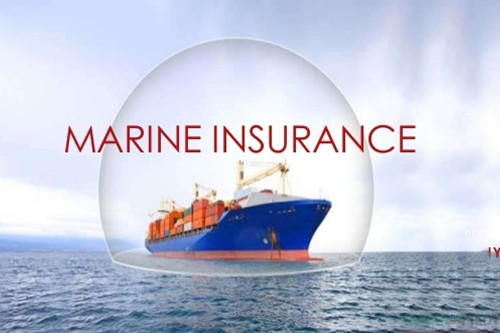Risk and Economy: Marine Insurance

By Ade Fashola
Hello Readers,
This week I will be discussing Marine Insurance. I will resume the Witchcraft story next week.
Femi sought clarification on how insurance could help import business; my response was “get marine insurance”. As expected, he enquired as to what it was which was explained. Contract of marine insurance is an agreement between the insurer and the insured whereby the insurer undertakes to indemnify the insured, in the manner and to the extent thereby agreed, against transit losses, meaning losses incidental to transit of goods. Marine insurance plays an important role in both domestic and international trade. Most contracts of sale require that the goods must be covered, against loss or damage either by the seller or the buyer, depending on the contracts.
If the contract or the agreement is Free on Board (F.O.B.) it means the seller is responsible for the safety of the goods till the goods are placed on board the steamer or rail. The buyer is responsible thereafter. The buyer can get the insurance done wherever he likes.
Another type is Cost and Freight (C&F), for this type, the seller will bear the freight cost and the buyer’s responsibility normally attaches once the goods are placed on board. The buyer has to take care of the insurance from that point onwards.
Third type is Cost, Insurance & Freight (C.I.F.), In this case, the seller is responsible for arranging both the freight and insurance up to destination. The seller includes the premium charge as part of the cost of goods in the sale invoice.
The normal practice in export/import trade is for the exporter to ask the importer to open a letter of credit with a bank in favor of the exporter. As and when the goods are ready for shipment by the exporter, he hands over the documents of title relating to the import to the bank and gets the bill of exchange drawn by seller on the importer, discounted with the bank. In this process, the goods which are the subject of the sale are considered by the bank as physical security against the loan or monies advanced by it to the exporter. A further security by way of an insurance policy is also required by the bank to protect its interests in the event of the goods suffering loss or damage in transit, in which case the importer may not make the payment. The terms and conditions of insurance are specified in the letter of credit. For export/import policies, the-Institute Cargo Clauses (I.C.C.) are used. These clauses are drafted by the Institute of London Underwriters (ILU) and are used by insurance companies in a majority of countries including Nigeria.
“How will I know the policy to buy?” Femi asked. For imports, all you need is a Cargo Insurance which provides insurance cover in respect of loss of or damage to goods during transit by rail, road, sea or air. Cargo insurance concerns the Export and import shipments by ocean-going vessels of all types,Coastal shipments by steamers, sailing vessels, mechanized boats, etc., Shipments by inland vessels or country craft, and Consignments by rail, road, or air and articles sent by post.
“Please break down the process flow of buying the marine insurance for the purpose of importation” Femi further probed.
I suggest getting quotation from 2 or 3 insurance Companies, settle for the most competitive premium, get your policy document or a cover note if the policy documents is not ready.
Information required by the insurance company include:
(1) the name of the shipper or consignor (that your name as insured).
(2) Full description of goods to be insured (that is the nature of the commodity). For rating and underwriting. Different types of commodities are susceptible for different types of damage during transit- sugar, cement, and the likes are easily damaged by sea water; cotton is liable to catch fire; liquid cargoes are susceptible to the risk of leakage and crockery, glassware to breakage; electronic items are exposed to the risk of theft, and so on.
(3) Method and type of packing: The possibility of loss or severity of damage depends on the type or method of packing. Generally, goods are packed in bales or bags, cases or bundles, crates, drums or barrels, loose packing, paper or cardboard cartons, or in bulk etc.
(4) Voyage and Mode of Transit: The insurance company will ask you some information bothering on the following points: (i). the name of the place from where transit will commence and the name of the place where it is to terminate. (ii). mode of conveyance to be used in transporting goods, (i.e.) whether by rail, road, air, etc., or a combination of two or more of these. (iii)The name of the vessel is to be given when an overseas voyage is involved. In land transit by rail, lorry or air, the number of the consignment note and the date thereof should be furnished. (iv)The postal receipt number and date thereof is required in case of goods sent by registered post. (v). If a voyage is likely to involve a trans-shipment it enhances the risk. This fact should be informed while seeking insurance. Trans-shipment means the change of carrier during thevoyage.
What should I expect from insurance company? Femi demanded.
I continued. A certificate of insurance is issued to satisfy the requirements of the insured or the banks in respect of each declaration made under an open cover and / or open policy. The certificate, which is substituted for specific policy, is a simple document containing particulars of the shipment to be imported or sending. The number of open contracts or details of transaction under which it is issued is mentioned, and occasionally, terms and conditions of the original cover are also mentioned.





